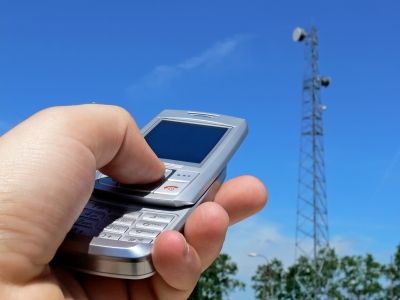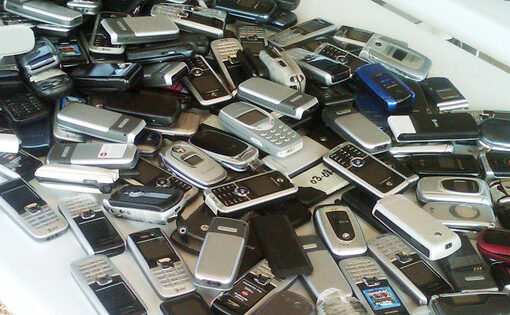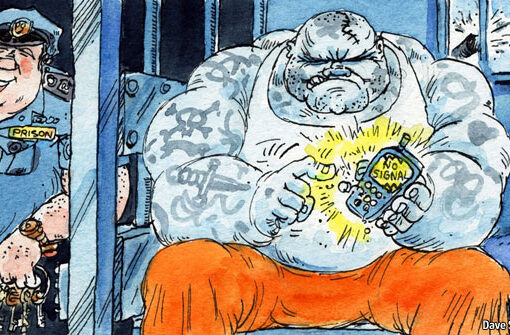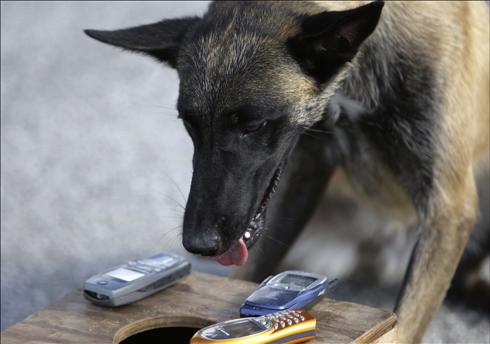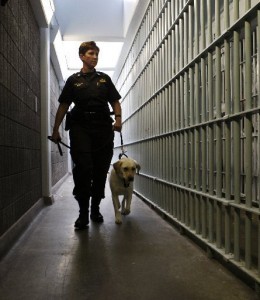 Another news item about the use of dogs to find contraband cell phones in prison, this time in Ohio. According to the article, “Policy experts say efforts to reduce the effects of mobile devices in jail are less effective than having good contraband policies in place to reduce them.” We couldn’t agree more. The best way to reduce the contraband value of cell phones in prison is to co-opt the problem by offering a secure prison cell phone solution.
Another news item about the use of dogs to find contraband cell phones in prison, this time in Ohio. According to the article, “Policy experts say efforts to reduce the effects of mobile devices in jail are less effective than having good contraband policies in place to reduce them.” We couldn’t agree more. The best way to reduce the contraband value of cell phones in prison is to co-opt the problem by offering a secure prison cell phone solution.
Man’s best friend is being trained to sniff out cell phones in correctional facilities, since mobile communication devices are becoming an increasingly prevalent source of contraband in jails and prisons.
As widespread use of mobile devices in regular society spills over to the incarcerated population, correctional officers are devoting much of their time battling over removing the devices, and the associated issues they bring into the prison environment.
To address the problem, Ohio’s Butler County got a cell phone-sniffing, 18-month-old chocolate Labrador named Tank, an invaluable resource in keeping the visitation rooms and jail free of contraband.
Tank is able to smell the lithium battery in cell phones when directed to do so by his correctional officer and owner, Chris Morris.
“This is just play to him,” Morris said after Tank found a cell phone by scent and then indicated his discovery by sitting and staring at the suspicious spot until Morris found the banned item.
Tank stays in his kennel in the jail, leaving to complete a specific check if anything is suspected or for his routine rounds of cells and other general areas throughout the day.
The dog came to the county from West Virginia’s Ultimate Working Dogs center, which trains law enforcement dogs, and lives with Morris and his family.
Ultimate Working Dogs’ Tracy Landis reports the demand for cell phone detection dogs has been increasing with the popularity of the devices.
“They are used in jails and prisons because cell phones are contraband there just as much as narcotics,” Landis said.
In addition to the dog’s cell phone sniffing capability, county officials said just the dog’s very presence serves as a deterrent. If those incarcerated know the dog will be making rounds, they may be less likely to try to obtain and keep the outlawed devices.
States like South Carolina might look to Ohio for solutions to their problem, which they are attempting to remedy by legislation. Officials in the Palmetto State, who are battling prisoner use of social networks for both entertainment and harassment of victims and further criminal enterprises, have looked into punishing anyone outside or inside the prison that helps an inmate with a social networking account with a $500 fine and an extra 30 days in prison.
And in Texas, a prisoner broke out of a Beaumont facility using a smartphone to enlist the help of a Facebook fan to help with the getaway, prompting Lone Star state officials to further clamp down on the devices.
Policy experts say efforts to reduce the effects of mobile devices in jail are less effective than having good contraband policies in place to reduce them, and Tank is turning out to be a good, albeit cuddly, policy enforcer.
- Blockchain System for Compliant Inmate Transactions - March 4, 2025
- Securus Gets the Signal, Eleven Years Later - August 23, 2024
- Multi-Blockchain System for Inmate Forensics - April 2, 2024

